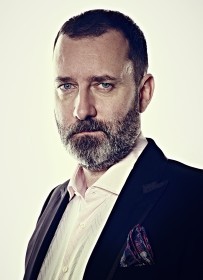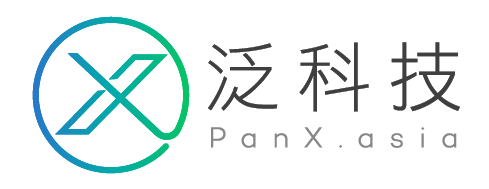“Creative work is iterative: you have to try something, failing, and try again repeatedly until you succeed”-Kevin Ashton
Kevin Ashton is a visionary technologist. He led pioneering work on RFID (radio frequency identification) networks, for which he coined the term “the Internet of Things,” and co-founded the Auto-ID Center at MIT. He has led three successful tech start-ups, including Zensi, which he co-founded and sold to Belkin in 2010. His writing about innovation and technology has appeared in the New York Times, The Atlantic, Politico, and Quartz.

Kevin Ashton’s book “How to Fly a Horse: The Secret History of Creation, Invention, and Discovery” was published in Taiwan on March 29, 2016, and PanX asked Kevin Ashton’s opinion via email about challenges for education, relationship between science and economic development, and strategy for developing Taiwan’s IoT industry. Here are his responds.
Q1. Education in Asia, including Taiwan, often comes under criticism for not encouraging creativity. Meanwhile, we have seen so many examples who were frustrated in Asian education but well-accomplished in western system. In your opinion, what measures could be taken for the education system to promote continuous creativity and creation? Any examples?
First, I wouldn’t say that education in Asia or Taiwan is worse than elsewhere, and I would be happy to debate those critics. Asian countries, including Taiwan, have thriving creative economies, after all. The challenge for education is the same all over the world: creative work is iterative: you have to try something, failing, and try again repeatedly until you succeed. Most classrooms emphasize getting things right first time, and that favors learning how to do what has already been done, rather than learning how to something new. I’d love to see more longer term projects in schools, where students spend several months on something, and work through a systematic process of iteration, and respond to feedback from their teachers, rather than simply turning in work to be graded. In a creative writing class that could involve turning in a first draft of a story, then editing it into a second draft, and a third, until it is final. In an art class it could be a process of studies, before several rounds of sketches, before completing a final piece of work. In a science, it could involve learning some principles, building prototypes, conducting experiments on them, then make a final version of something. Iteration does not come naturally to many people: most of us want things to work instantly, and get frustrated or bored if they have to keep returning to a thing to improve it. But it can—and should—be taught. It s an essential component of creative behavior.
Q2. Creation and innovation come from hard work and long-term commitment. However, scientific researches sometimes fail to catch up with the industrial and economic developments. There have been discussions and debates in Taiwan that science should meet the demand of the society. Do you have any comment on that?
Pure science—that is, science for its own sake, without obvious practical application—is the ultimate source of all economic value. The wisest society is one that lets its scientists explore freely, and trusts that some of their discoveries will eventually yield economic value. Much of the modern global economy is built on electronics and radio technology, for example: that technology only exists because nineteenth century scientists like James Clerk Maxwell and Heinrich Hertz conducted pure science experiments into the electromagnetic spectrum. After they published their discoveries, other scientists and engineers, used them to create valuable technology, including radio, television, computers, space craft, radio telescopes, X-rays, cell phones, WiFi, and GPS. Neither Maxwell nor Hertz could have imagined any of these things when they were doing their work. If they had only been allowed to work on things with obvious, immediate practical value, we would not have any of these amazing, important technologies today. There would be no TSMC, for example. Who are the modern day equivalents of Maxwell and Hertz? Some examples are particle physicists and astrophysicists—including, in Taiwan, Ní Wéidòu (倪維斗) and Wú Màokūn (吳茂昆). The work these people do is amazing, and while its object is pure curiosity, and it has no obvious economic value today, it is certain to unlock unimaginable value tomorrow.
3. To promote the development of the Internet of Things has become an important industrial policy of Taiwanese government, which in other words, is more like a critical answer to the next momentum of economic growth. According to a latest story in The Economist , the economy of Taiwan, which has been over-dependent on electronics industry, will be severely harmed after China’s self-sufficient industrial division is complete. What strategy and steps do you suggest Taiwan should take to facilitate the development of the Internet of Things?
Taiwan’s success in microelectronics over the last few decades has been one of history’s great economic miracles. I see no reason why Taiwan cannot repeat that with the Internet of Things. My suggestion on the Internet of Things is simple: learn by doing. The countries that develop the most successful Internet of Things export economies will probably be the ones that adopt Internet of Things technologies first, make the first mistakes, and learn the first lessons. One way to do that is through government funding of Internet of Things technologies by, for example, creating programs that enable smart cities, and providing incentives and infrastructure to develop Internet of Things-enabled agricultural and industrial areas. These programs need not be on a large scale at first: it is probably better to fund lots of small pilot projects, evaluate them, then gradually increase funding to the ones that succeed. This creates a competitive, but subsidized, market where new technologies can flourish.
中文版連結:
首圖來源:Pexels










留言討論